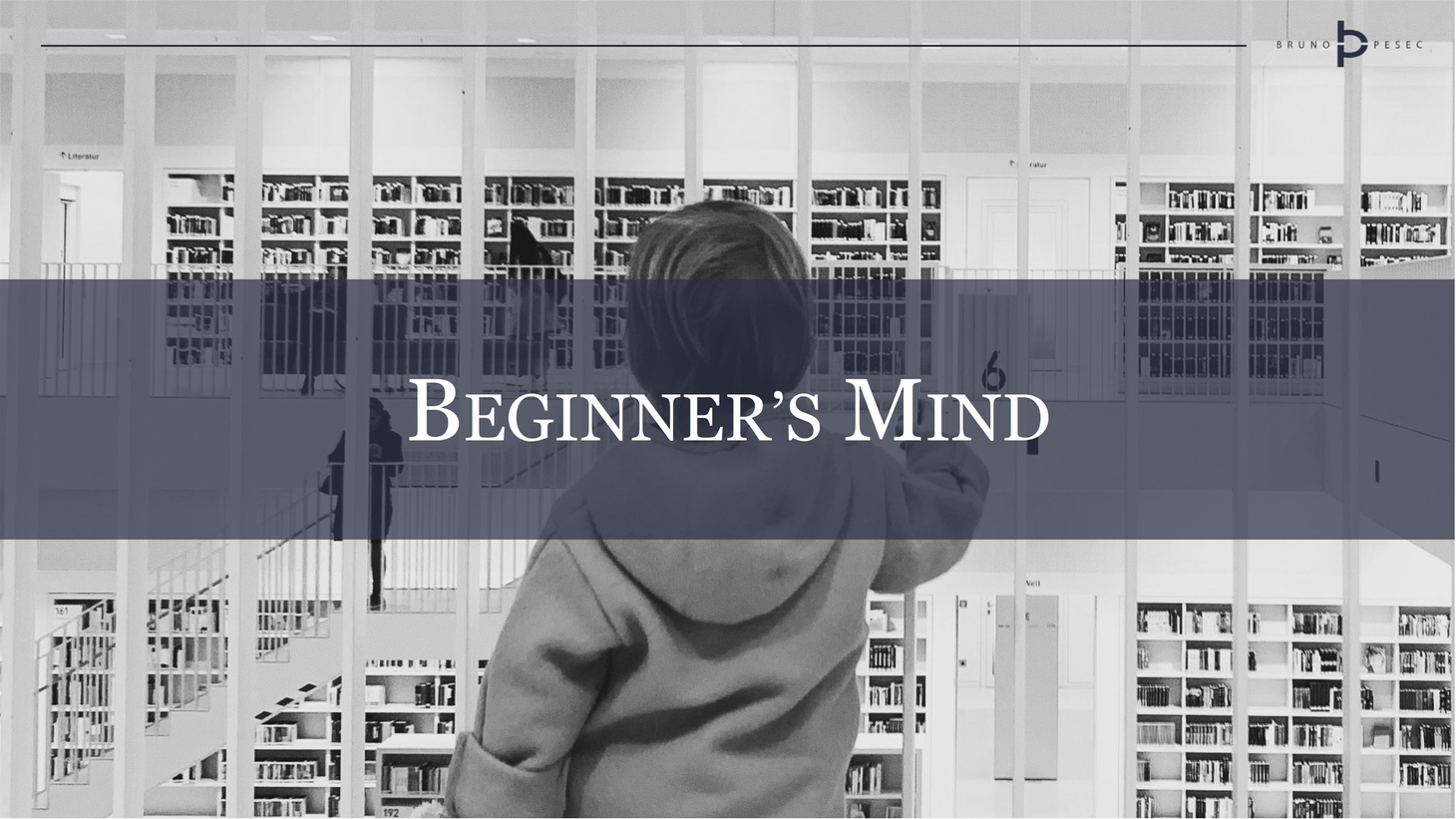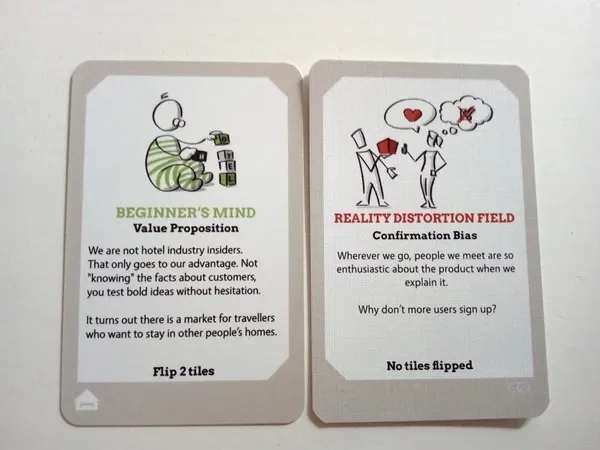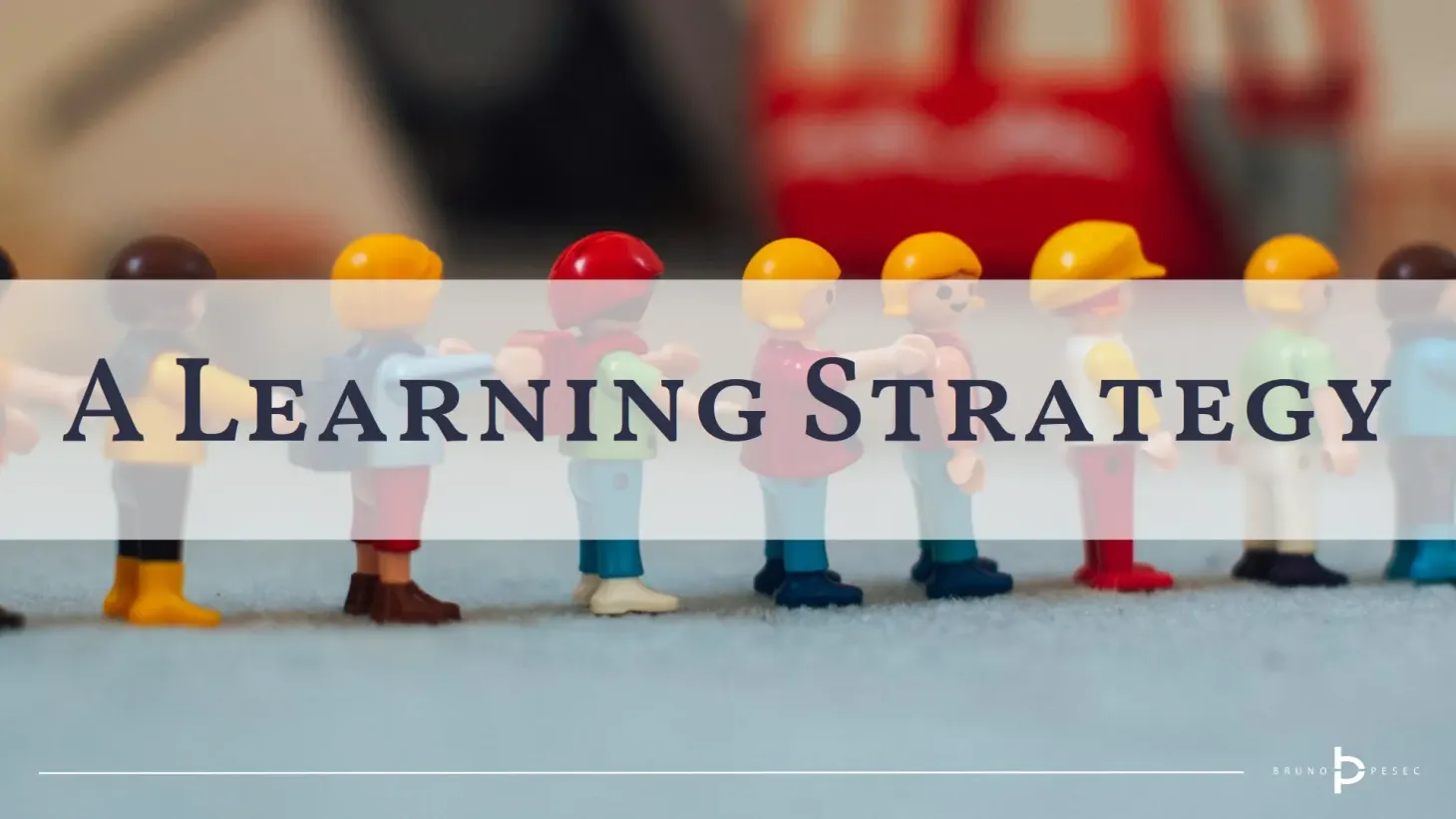Beginner's Mind
Overcome reality distortion field and curse of knowledge by assuming the beginner's mind.

How can passionate innovators stop sabotaging themselves?
Passion can be a great driver, but it can also fuel a powerful reality distortion field.
If there is someone who has an abundance of passion for an idea, that must be entrepreneurs and innovators. This helps them to persevere on their path, and survive this emotional journey.
But if they are not careful, and become too delusional and disconnected from reality, then they are risking wasting time, money, and their wellbeing.

So, what can one do?
Assuming a beginner’s mind is one way to reduce the impact of this reality distortion field:
The mind of the beginner is empty, free of the habits of the expert, ready to accept, to doubt, and open to all the possibilities. It is the kind of mind which can see things as they are, which step by step and in a flash can realize the original nature of everything. – Shunryū Suzuki in Zen Mind, Beginner's Mind
Here is what you can do:
- Allow yourself to be curious about the world. How does something work? Why does it work that way? Can it work differently? Can it be replaced with something else? Why would it? Why wouldn’t it?
- Allow yourself to be curious about yourself. How do I know what I know? Why do I think what I think? How did I come to the conclusion I did? Why do I assume that? What is influencing my perception? Why do I behave as I do?
- Ask questions with genuine learning intent. There is little shame in asking something you are genuinely trying to learn more about. Others will be more generous and happy to share with you, because they will intuitively sense that your intentions are pure.
- Ask deeply. Good, profound, questions open endless paths. Something might seem simple, but further questioning might reveal its deception. Don’t be afraid to question further, repeatedly, trying to understand if there are some deeper connections, causal relationships, and patterns. Taiichi Ohno’s five whys is a good example.
- Question indiscriminately. Why assume that you can only learn from those you perceive to be experts? There is much to be learned from each other. Being too judgmental in who and what you question might close off venues that might lead to unexpected discoveries.
Beginner’s mind is also a great stance for dealing with the curse of knowledge, an assumption that something is obvious to everyone just because you understand it:
Things make sense once they make sense, so it can be hard to remember why they didn't. We build complex networks of understanding and forget how intricate the path to our available knowledge really is. This bias is closely related to the hindsight bias wherein you will tend to believe that an event was predictable all along once it has occurred. We have difficulty reconstructing our own prior mental states of confusion and ignorance once we have clear knowledge. – yourbias.is
Better thinking leads to better ideas.
May the fastest learner win!
This post was originally published on Playing Lean blog.
Bruno Unfiltered
Subscribe to get the latest posts delivered right to your inbox. No spam. Only Bruno.




